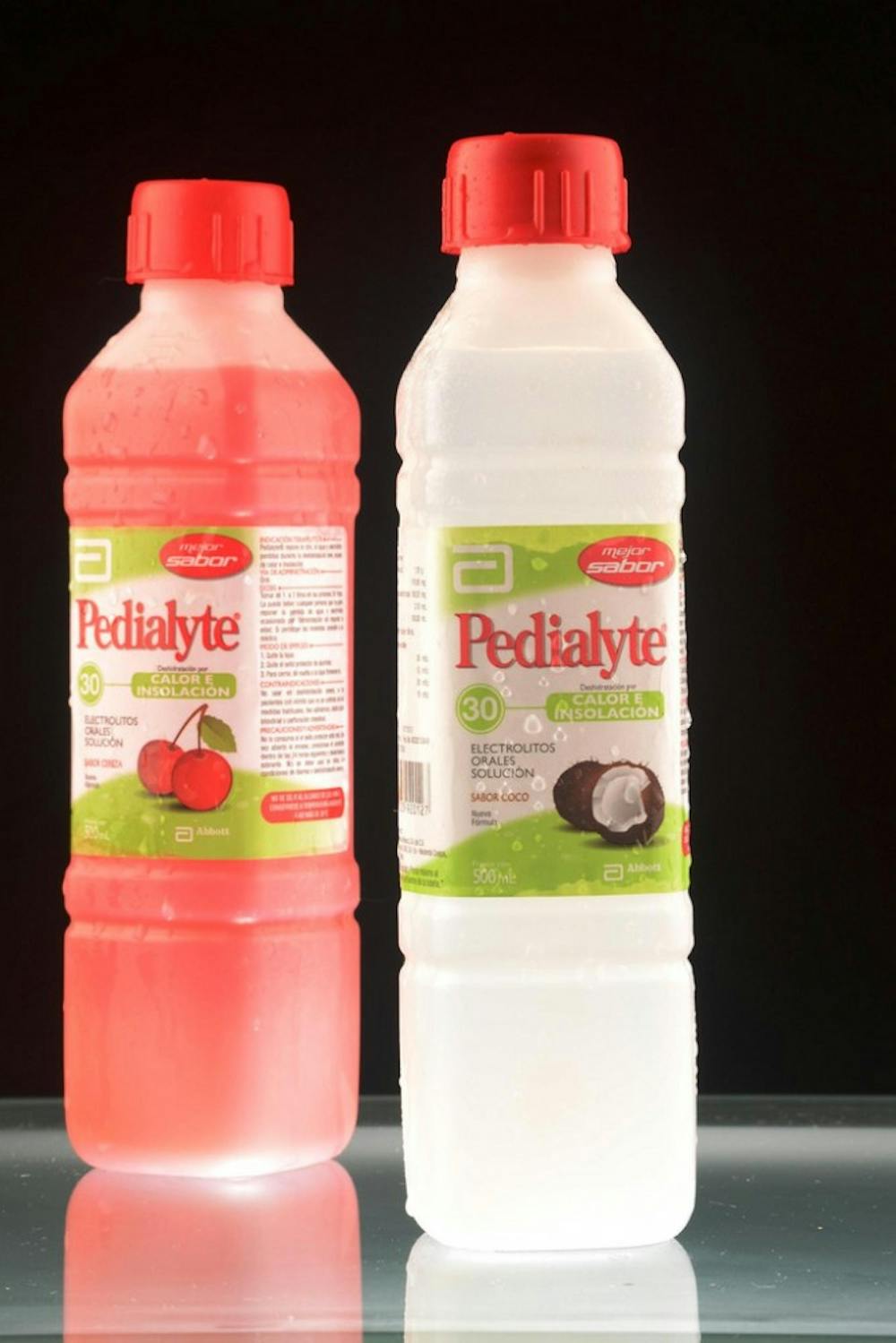Whether you’re sippin’ on wine with the pals or five shots deep at a rager, the next morning will likely bring the same feeling: the dreaded hangover. And Advil doesn’t even cure all of it: even after taking more than the recommended dosage there is still a cloud over your brain that makes you think you can physically feel the amount of brain cells killed the night before. Besides drinking less (boo!), we found some ways to (hopefully) mitigate these evil effects.
Hangovers are commonly attributed to the dehydrating effect alcohol has on the body. Although the only way to avoid a hangover is to drink in moderation, or refrain from drinking at all, combating the number one cause of feeling like actual hell the morning after is relatively simple. Hydrate. And Pedialyte is here to help! Originally marketed as a super–hydrator geared towards infants and children, they have recently broadened their advertisements to include the hangover–prone.
Pedialyte advertises their product online as containing the optimal mixture of electrolytes and sugar in rehydration. With 62 Calories per 591 mL serving and only 15 grams of sugar, Pedialyte outshines Gatorade in the health department (most sports drinks have between 30–40 grams of sugar and 150 calories per 591 mL serving). Electrolytes are important for balancing fluids in your body, maintaining the blood’s proper acidity, and powering nerve and muscle tissue. So even if you chug some water before bed, you may still be missing out on replenishing your body’s supply of electrolytes that are lost in sweat, urine, and (though hopefully not) vomit. Pedialyte also has twice as much sodium and potassium per volume than a typical sports drink, and half the calories and sugar. However, it tends to be more expensive (about five dollars a liter). Pedialyte may be the new hangover cure–all sweeping the country (even Miley Cyrus ‘grammed a pic of the bottle), but, as any good journalist will tell you, let’s do a little more research before we start buying out the shelf in FroGro (fun fact: the whole shelf was sold out after NSO).
A study observing 1,600 students in the Netherlands and Canada revealed that though hydrating (in the form of water or sports drinks) correlated with a slightly less severe hangover, the only action the students took that noticeably reduced the effects of their hangover was consuming less alcohol. The Atlantic released an article a few years ago discussing the Pedialyte craze. It interviewed our very own Stanley Goldfarb, a professor at Penn’s medical school, who stated that headaches and other hangover symptoms occur because of the chemicals released from breaking down alcohol, not solely due to dehydration and loss of electrolytes. For that reason, Goldfarb says that Pedialyte is no better for hydration than water, to the disappointment of college students everywhere.
Until a magic hangover cure does arise (which medical researchers are hesitant to look into because they think it could potentially promote binge-drinking), you may catch a few of us slamming down Pedialyte after a night out, but I think we’ll stick to the tried–and–true cure all: napping all day.







